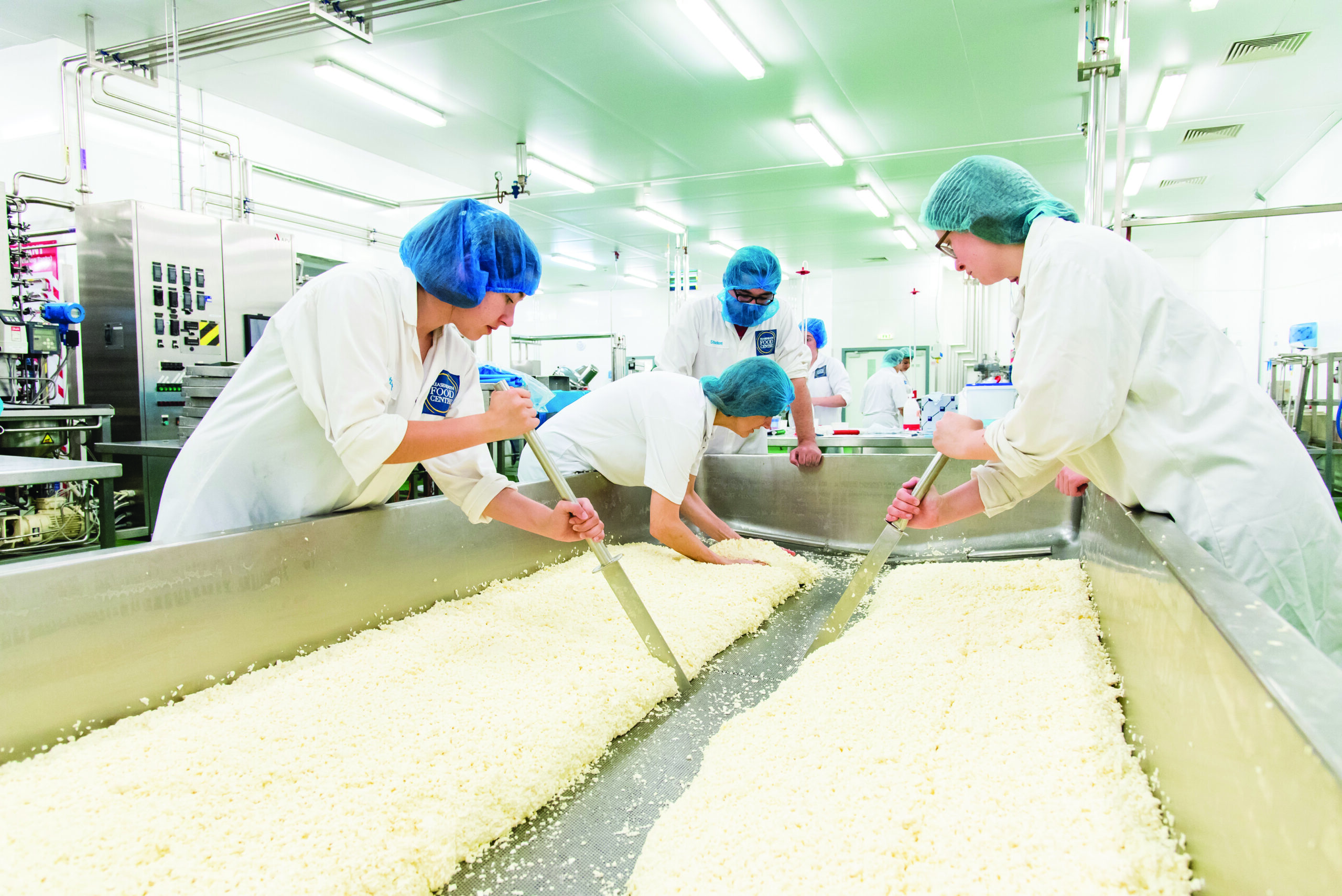Order Cheese for Sale Online Melbourne's Trusted Cheese Makers
Order Cheese for Sale Online Melbourne's Trusted Cheese Makers
Blog Article
An In-Depth Check Out Cheese Manufacturing: Components, Techniques, and the Future of Artisan Cheeses
The detailed process of cheese manufacturing is a fascinating merging of art and scientific research, where top notch milk, rennet, and certain microbial cultures offer as foundational elements. As the market increasingly focuses on sustainability and openness, the future of artisan cheeses assures to reflect both heritage and progression.
Key Components in Cheese Production
A range of necessary components play an essential duty in cheese manufacturing, each adding to the end product's flavor, texture, and character. The primary ingredient in cheese is milk, which can come from numerous resources, including cows, goats, and sheep - cheese factory melbourne. The kind of milk used substantially influences celebrity's preference and uniformity; as an example, cow's milk normally generates creamier cheeses, while goat's milk commonly generates appetizing varieties
One more essential ingredient is rennet, an enzyme made use of to curdle the milk, separating it into curds and whey. The resource of rennet can be animal, vegetable, or microbial, each presenting unique qualities to celebrity. Societies, being composed of certain pressures of germs, are also important to the cheese-making process. They ferment lactose into lactic acid, helping in flavor development and texture.
Salt not just boosts the taste however likewise serves as a chemical, inhibiting the growth of unwanted microorganisms. In addition, various flavor representatives, such as herbs, seasonings, or perhaps smoked timber, can be included in develop one-of-a-kind artisanal cheeses. Together, these ingredients develop the foundation of cheese manufacturing, establishing the stage for diverse and rich cheese ranges.
Standard Cheese-Making Techniques
Making use of standard cheese-making techniques, craftsmens around the globe maintain classic techniques that have been passed down with generations. These techniques typically stress using high-quality, locally sourced milk, which is main to the distinct tastes and structures of artisanal cheeses. The procedure commonly starts with the mindful home heating of milk, complied with by the enhancement of cultures and rennet to promote coagulation.
As soon as the curds create, they are reduced, allowing whey to drain, an important action that influences moisture content and structure. Salting is a crucial element of this procedure, enhancing flavor while additionally acting as a chemical.
Aging, or affinage, is another essential component, throughout which cheeses create their characteristic fragrances and preferences. Artisans may employ certain aging environments, using moisture and temperature controls to fine-tune the cheese's profile. The dedication to these standard methods not just sustains local economic climates however additionally adds to the abundant diversity of cheese ranges located globally, celebrating cultural heritage and artisanal workmanship.
Modern Technologies in Cheese Production
How have technical advancements changed cheese manufacturing in recent years? The assimilation of modern-day innovation has actually changed both the performance and top quality of cheese manufacturing.
In addition, innovations in microbiology have actually made it possible for cheesemakers to pick certain microbial cultures and enzymes, maximizing taste profiles and improving life span. Using sensing unit innovation for keeping an eye on fermentation conditions has also ended up being prevalent, enabling real-time adjustments to preserve optimum atmospheres for cheese aging.

These innovations not original site just improve the quality and sustainability of cheese manufacturing but likewise empower craftsmen manufacturers to preserve traditional flavors while embracing contemporary effectiveness. As modern technology remains to progress, the future of cheese production looks encouraging, mixing practice with advancement.
The Duty of Terroir in Cheese
In the world anonymous of cheese manufacturing, terroir plays an essential function in specifying the unique features of various cheeses. Terroir, a French term commonly related to a glass of wine, includes the environmental variables that affect agricultural products, including soil make-up, environment, and local flora and animals. In cheese-making, the one-of-a-kind features of the region where the milk is sourced can impart certain tastes and structures to the final product.
For instance, the grazing problems of milk animals substantially affect the milk's make-up, affected by the kinds of lawns and natural herbs offered in a specific place. This varies not only between nations but likewise between areas within the same nation. Furthermore, the microbial neighborhoods present in the atmosphere add to the fermentation procedures, causing varied profiles in flavor and aroma.
Cheeses such as Roquefort, Parmigiano-Reggiano, and Cheddar exemplify exactly how terroir can shape their identifications, making them distinct and frequently shielded by geographical indications. As producers progressively identify the value of terroir, there is an expanding focus on sourcing local active ingredients and preserving typical practices, making certain that each cheese really mirrors its beginning.

Future Fads in Craftsmen Cheeses
A notable change is occurring in the artisan cheese field, driven by developing consumer choices and technological innovations. Significantly, customers are moving towards special, high-grade products that highlight both sustainability and local sourcing - cheese makers melbourne. This trend is triggering artisan cheesemakers to introduce, concentrating on small-batch production and making use of typical methods while integrating modern-day innovation to enhance high quality and security
Additionally, there is a growing rate of interest in plant-based and different milk products, pressing traditional cheesemakers to discover new avenues, such as cashew look here or almond-based cheeses. This change not only accommodates nutritional constraints however also aligns with ecological issues pertaining to animal farming.
In addition, openness in sourcing and production processes is ending up being extremely important. Consumers are more educated and demand traceability, triggering producers to adopt clearer labeling practices and participate in narration that highlights their techniques and worths.
Conclusion
In verdict, the detailed procedure of cheese manufacturing fuses traditional methods with modern-day innovations, leading to a varied selection of tastes and textures. The focus on high-quality active ingredients and the impact of terroir emphasize the virtuosity involved in cheese production. As the market develops, a concentrate on sustainability and transparency will likely form the future of artisan cheeses, satisfying a significantly critical consumer base that values credibility and workmanship in dairy items.
Report this page